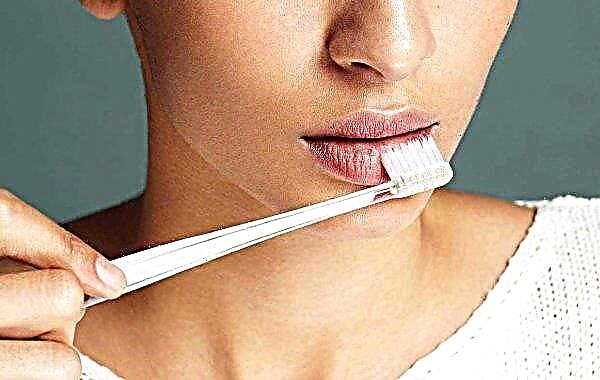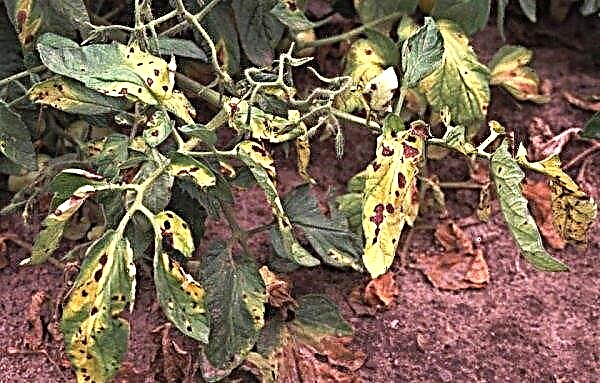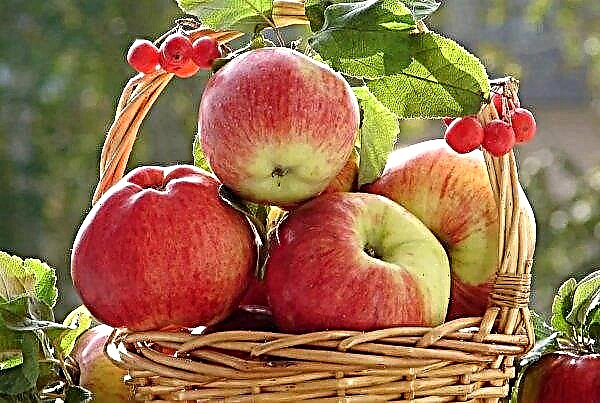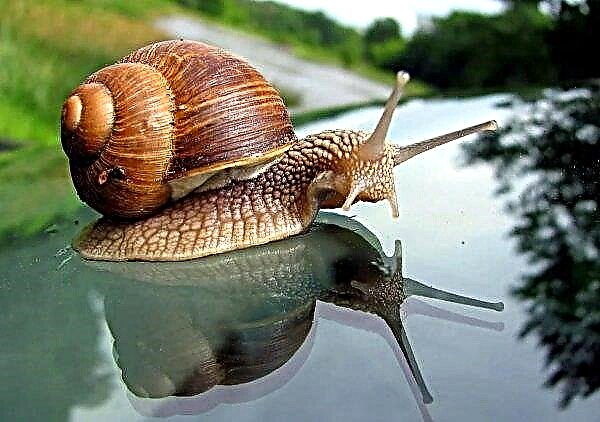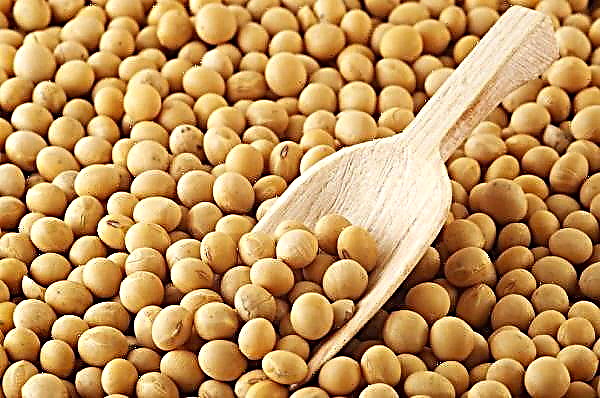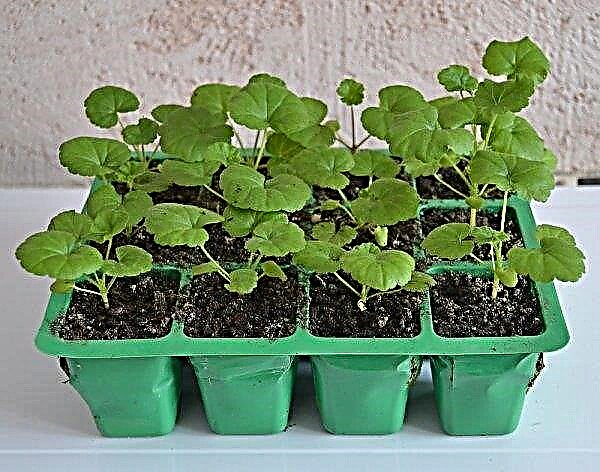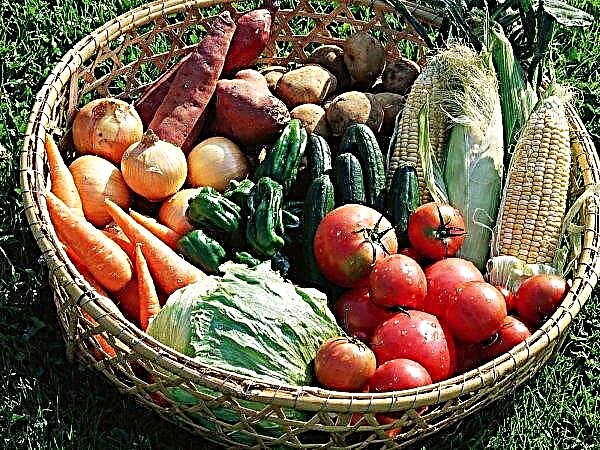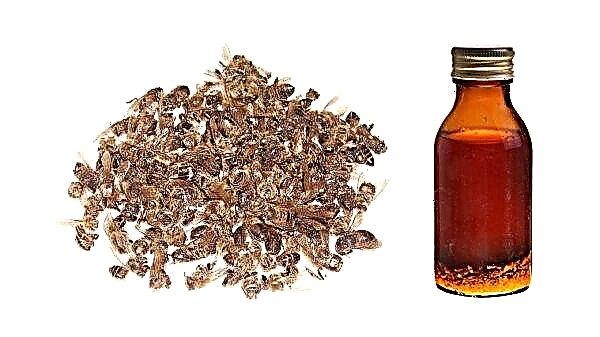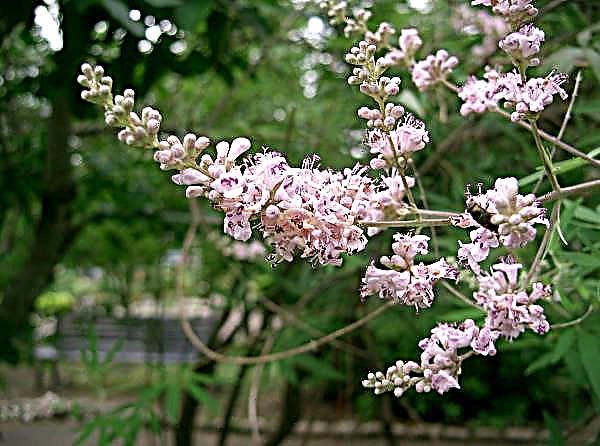We used to dry many fruits and vegetables for the winter - both in the form of spices, and for cooking, for example, compotes and other dishes. This type of blank allows you to save all the useful properties of the original product. In our material, we consider dried dill - this plant is considered a spice in many countries and is appreciated not only because of its taste, but also because of its health benefits.
Pros and Cons of Drying Dill
Dill is an annual plant that is used as seasoning. To apply it in this form, the plant goes through a drying process. But many people think that it is always better to use a fresh product. We suggest highlighting the pros and cons of the drying process in order to understand what form of dill is best to eat.
- Pros:
- no need to constantly buy a fresh product;
- due to drying, the plant is stored longer;
- dried dill is used for diet food.
Did you know? In ancient Rome, often made bouquets consisting of one dill. He was given to his beloved as a sign of great love.
- Minuses:
- improper storage can affect the taste of dill;
- if the workpiece is incorrect, all its useful properties disappear;
- the product is not suitable for decorating dishes in this form.
Properties of Dried Dill
The composition of the plant itself includes many elements that favorably affect human health.
Due to this, dill has the following properties:
- antispasmodic;
- lowers blood pressure;
- carminative;
- expectorant;
- diuretic;
- soothing;
- wound healing.

Benefit
Adding it to food, not everyone knows what dill is useful for.
- Consider the useful qualities of a dried product:
- It can eliminate involuntary muscle contraction and reduce the pain effect.
- It is recommended for people whose blood pressure is higher than normal.
- Decoction from the plant helps with cystitis and diseases of the urinary tract.
- After a severe cold or flu, a decoction from this Umbrella representative will help get rid of cough.
- Helps with bloating and flatulence.
- Helps restore emotional balance and improve sleep.
- It shows its ability to heal wounds with allergic reactions to soothe irritated skin areas.
Harm and contraindications
Dried dill should not be used as food for people with low blood pressure. Also, it is not recommended for pregnant women and during lactation. Before use, women in position should consult a doctor.
Did you know? The calorie content of dried dill is 7.5 times lower than that of a fresh product.
The chemical composition and calorie content of dill
The composition of the product includes various vitamins - groups A and B. The product is rich in macronutrients.
We consider each separately below:
- Vitamin A. It affects vision, it is necessary to create visual pigment in the retina. Retinol, also called vitamin A, affects immunity. It enhances health and helps white blood cells function better. Vitamin A helps in the repair of epithelial tissues.
- Vitamin B1. The minimum daily norm in this vitamin for humans is 1.2 mg. Its other name is thiamine. It is an important component in the diet of those who are actively involved in sports or do physical work daily. Helps to restore strength and improves protein metabolism.
- Vitamin B2. Riboflavin is a water-soluble vitamin that is added to many pharmacological drugs to treat eyes and skin. It has a wound healing property, helps with gastrointestinal diseases.
- Vitamin B5. Another name is pantothenic acid. Widespread due to the improvement of the condition of patients with alcoholism and during the treatment of acne. Often you can find in the chemical composition of drugs aimed at eliminating liver diseases.
- Vitamin B9 or folic acid. Participates in the development of the circulatory system in children, and also strengthens the immune system after diseases.
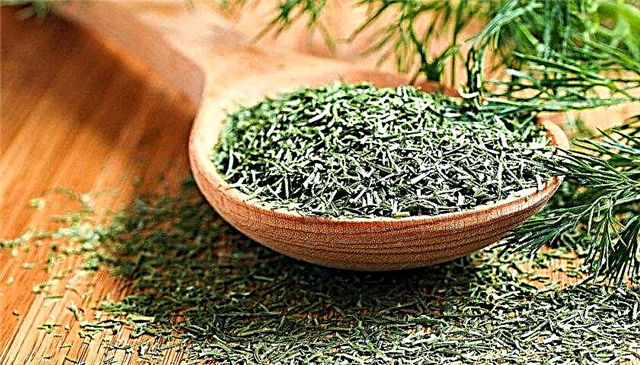
- Vitamin C. More commonly known as ascorbic acid. It is part of many fruits and vegetables. It is known that the content of ascorbic acid in bell pepper is higher than in lemon. Vitamin C strengthens the immune system, acts as an antioxidant.
- Vitamin PP The scientific name is nicotinamide. Recommended for liver diseases, gastrointestinal tract, diabetes mellitus, unbalanced diet.
- Vitamin E. Known as a protector of cell membranes that prevents oxidative damage. Increases resistance to hypoxia.
- Vitamin K. Essential for protein metabolism and kidney function. The daily intake of vitamin K for an adult is 90 micrograms.
- Magnesium. Provides body cells with energy, helps restore normal functioning of the nervous system and intestines. Its low content in the body may indicate poor sleep, fatigue, severe headaches.
- Potassium. Like the previous macroelement, it is involved in the normalization of the functioning of the nervous system, maintaining the water and acid-base balance.
- Iron. It takes part in the metabolism. Iron is a carrier of oxygen through the tissues of the human body.
- Phosphorus. Its absence affects the integrity and development of bones, as well as tooth enamel.
Energy ratio of proteins / fats / carbohydrates (respectively): 25% / 11% / 63%.
Important! There is an allergy to vitamin K, so it is best to consult your doctor before eating dill or other products containing this vitamin.
The use of dried dill
The plant is used as:
- component of folk recipes for the preparation of medicines;
- spice.

Important! Do not add too much spice so as not to spoil the dish with an overly saturated taste of the stems and leaves of dried dill.
Storage Features
To preserve the prepared spice until the next season, you must follow a number of simple rules:
- Store in a cool place. Heat contributes to poor retention of aroma;
- the container must be airtight;
- direct sunlight should not be allowed.
So, dried dill is a necessary spice in every home, because it will improve not only the quality of the dish, but also your health.



